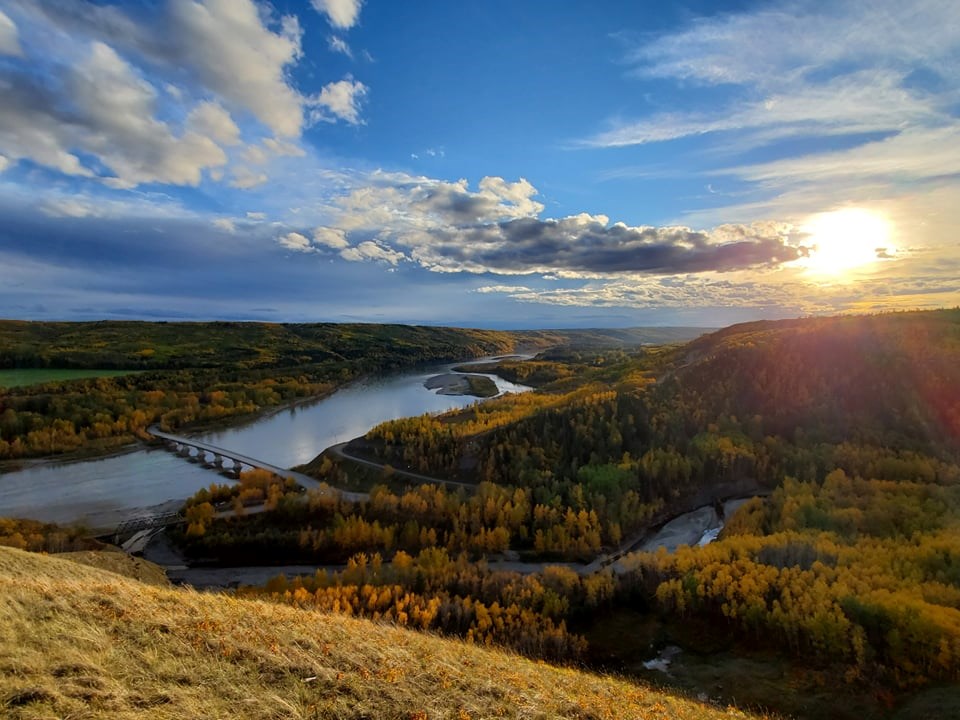Northeast B.C. saw some heavy headlines in 2023, from judicial matters to indigenous rights to media itself being the story focus, following the closure of local newspapers.
End of an era - the closure of the Alaska Highway News and the Fort Nelson News
After 64 years in business, the Fort Nelson News closed its doors for good in September, ending a vital news service for the Northern Rockies.
The paper had a circulation of roughly 2,000 and served the Alaska Highway all the way to Watson Lake and Fort Liard. The paper was originally a sister product to the Alaska Highway News, sharing the same founder - Margaret ‘Ma’ Murray.
The paper was sold to newspaperman Bob Angus, who purchased it for $3,000, including a table, a typewriter, and the newspaper title. By 1973, the paper had changed hands again, sold to Judith and Anthony Kenyon - with Judith as the long-time editor.
“She’s been publisher and editor for 50 years, put out 2,500 editions, and never missed one - which is quite a record,” said Anthony. “She’s quite modest about it.”
The Alaska Highway News and Dawson Creek Mirror followed not long after, with Glacier Media shutting the doors this past October, ending just under 80 years of "the only newspaper in the world that gives a tinker's damn about the North Peace," as famously said by Murray.
Honouring the rights of Indigenous peoples
2023 was also a monumental year for Treaty 8 First Nations, both culturally and legally, with Blueberry First Nations leading the way on agreement with the province on land use and resource development in northeastern B.C.
The agreement was a result of consultations that took place after the BC Supreme Court found that decades of industrial development in the Blueberry River First Nations’ traditional territory constituted a breach of treaty rights.
"For many years our treaty rights have been neglected and discounted, and our treaty lands and our communities have been fragmented by the cumulative impacts of poorly planned land-use decisions,” said Chief Justin Napoleon of Saulteau First Nation, joining the consensus agreement with Doig River, Halfway River, and Fort Nelson.
Controversy at the Peace River Regional District also made headlines, with a large number of residents attending a June 8 meeting in Fort St. John at the Pomeroy Hotel, expressing their opposition to a proposed treaty land sharing network.
North Peace Cattlemen’s Association President Renee Ardill was one of many voices who felt a government program wasn’t needed, noting residents already practice land sharing with their First Nations neighbours.
“All this is doing is driving a wedge between us and the indigenous people, which the government is really good at. I’ve been saying right from the start that we all need to be at the table,” said Ardill. “Us, the indigenous people, and leave the government the hell out of it - the government screwed this up 100 years ago and if it’s left to them, they’ll do it again.”
The PRRD has since withdrawn support for the network and issued a public apology to all Treaty 8 members.
Life sentence for killer of Amanda Black
The courts were also busy in 2023, with a sentence finally decided for Shane Sutherland, who will remain behind bars for the February 2021 murder of his girlfriend, Amanda Black, pleading guilty to second degree murder this past October.
A conviction for second degree murder carries a mandatory life sentence in Canada. Sutherland must serve a mandatory 10 years of incarceration before parole eligibility, which can only be granted at the discretion of the Parole Board of Canada.
“The extreme family violence left the young child of Ms. Black and Mr. Sutherland without their mother and essentially without their father as well,” said presiding Justice Lisa Warren. “It caused, and continues to cause profound pain for Ms.Black’s family and friends.”
It's a public road, not a driveway, judge rules in lawsuit
A section of a gravel and dirt roadway in Pouce Coupe did meet the definition of a public highway under section 42 of the Transportation Act, ruled B.C. Supreme Court.
The roadway became a subject of contention in a civil lawsuit between the province and South Peace residents Curtis and Deanne Querin, with the couple purchasing a quarter section at the eastern outskirts of Pouce Coupe in 1991.
Curtis Querin placed concrete blocks across his own driveway and his neighbours’ driveway in 2017, blocking neighbours Dale and Barbara Callahan from entering their own property -
Barbara has an aortic root aneurism which requires regular medical attention, and was prevented from attending a medical specialist appointment on the day the blocks were installed.
The province was asked to intervene by the Callahans, which led to ministry representatives and contractors removing the blocks and the gate from the roadway, and placing an injunction until the matter was settled in court.



